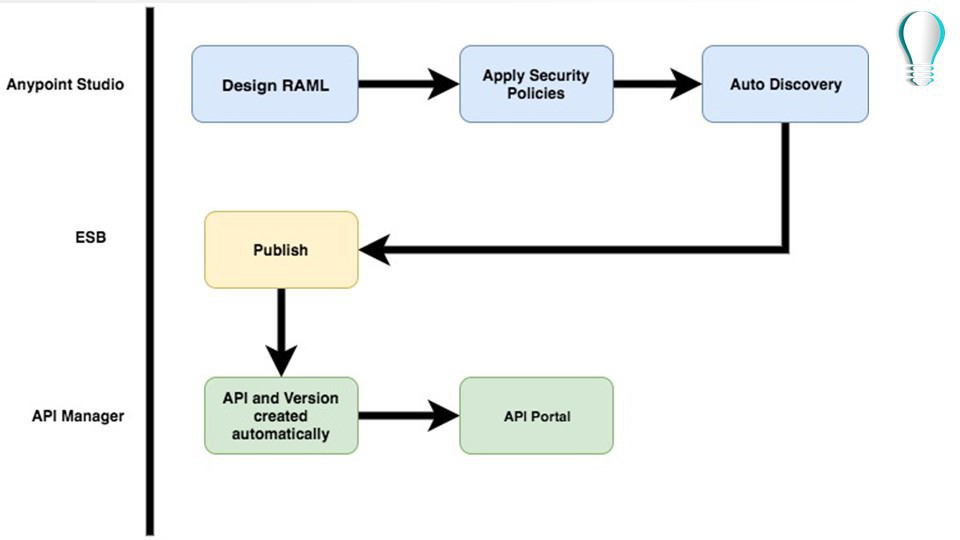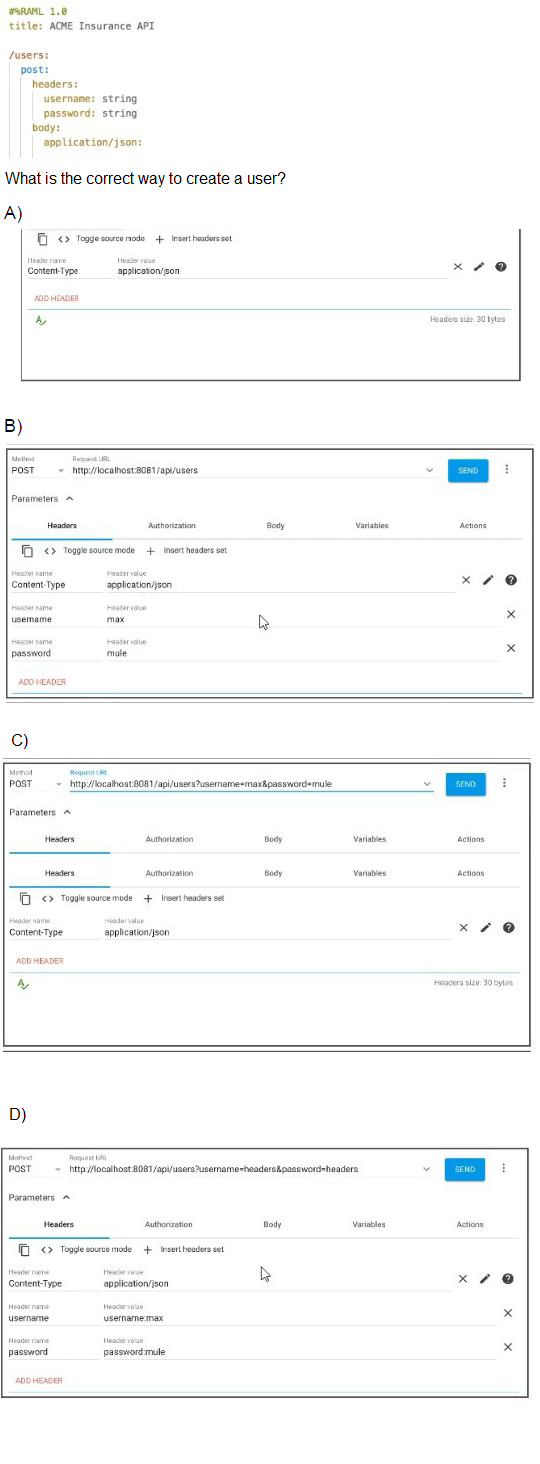
- Email support@dumps4free.com

A web client submits a request to http://localhost:8081?accountType=personal. The query parameter is captured using a Set Variable transformer to a variable named accountType.
What is the correct DataWeave expression to log accountType?
A. Account Type: #[flowVars.accountType]
B. Account Type: #[message.inboundProperties.accountType]
C. Account Type: # [attributes.accountType]
D. Account Type: #[vars.accountType]
Explanation: vars: Keyword for accessing a variable, for example, through a DataWeave expression in a Mule component, such as the Logger, or from an Input or Output parameter of an operation. If the name of your variable is myVar, you can access it like this: vars.myVar Hence correct answer is Account Type: #[vars.accountType]
An API has been created in Design Center. What is the next step to make the API discoverable?
A. Publish the API to Anypoint Exchange
B. Publish the API from inside flow designer
C. Deploy the API to a Maven repository
D. Enable autodiscovery in API Manager
Explanation:
Correct answer is Publish the API to Anypoint Exchange
1) In private exchange for internal developers
2) In a public portal for external developers/clients

An On Table Row Database listener retrieves data from a table that contains record_id, an increasing numerical column. How should the listener be configured so it retrieves new rows at most one time?
A. Set the target to store the last retrieved record_id value
B. Set the ObjectStore to store the last retrieved record_id value
C. Set the target to the record_id column
D. Set the watermark column to the record id column
A web client submits a request to http://localhost:8081/books/0471767840. The value "0471767840" is captured by a Set Variable transformer to a variable named booklSBN.
What is the DataWeave expression to access booklSBN later in the flow?
A. booklSBN
B. attributes.booklSBN
C. flowVars.booklSBN
D. vars. booklSBN
Refer to the exhibit.

A. Option A
B. Option B
C. Option C
D. Option D
| Page 9 out of 47 Pages |
| Previous |